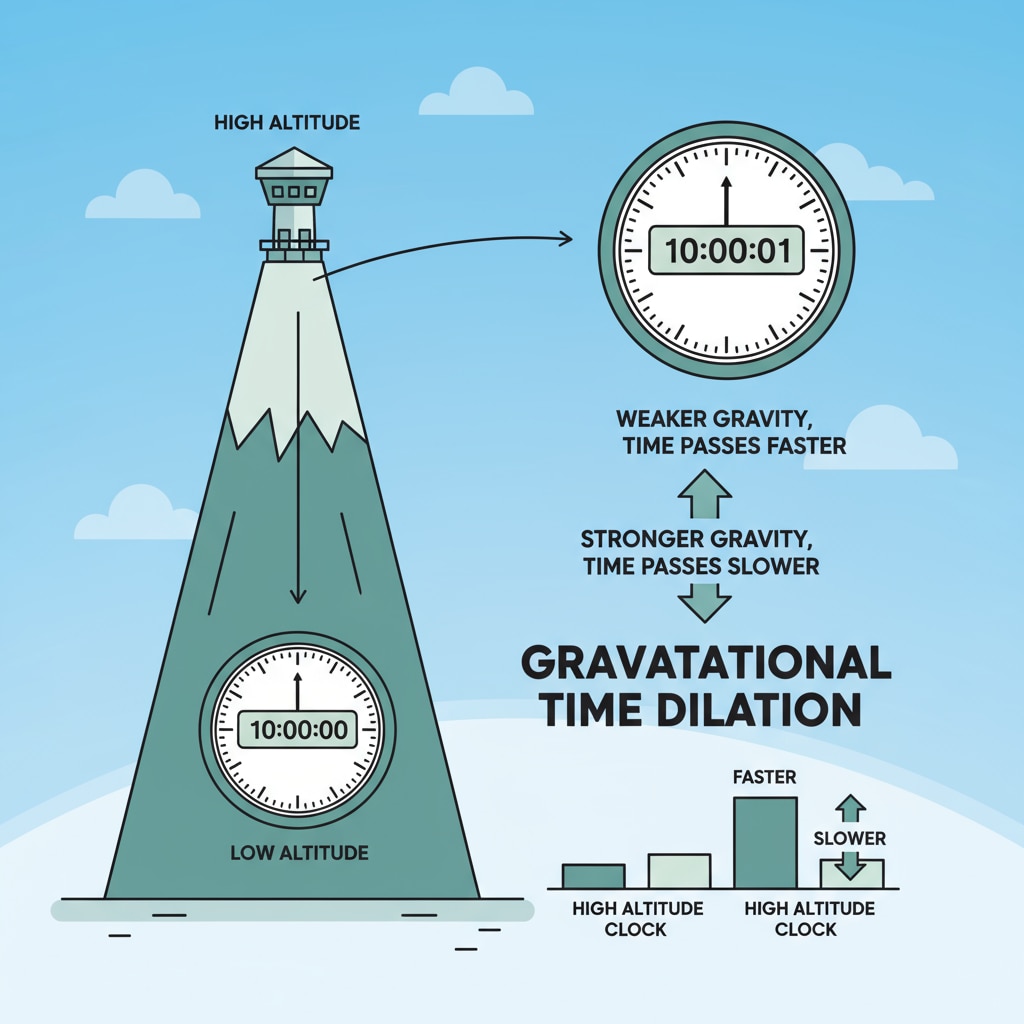Time, gravity, and relativity are fascinating yet complex concepts. When it comes to teaching these ideas to K12 students, it’s crucial to break them down into digestible parts. Einstein’s theory of relativity revolutionized our understanding of the universe, especially in how gravity influences the passage of time. Let’s explore how we can make this concept accessible to young learners.

The Concept of Spacetime
To start, we need to introduce the idea of spacetime. Spacetime is not just the three dimensions of space we’re familiar with (length, width, and height) but also includes time as a fourth dimension. Think of it as a fabric that stretches across the universe. Massive objects, like planets and stars, warp this fabric. For example, the Earth’s mass creates a dip in the spacetime fabric, much like a heavy ball placed on a trampoline. Spacetime on Wikipedia
Gravity and Time Dilation
Gravity has a profound effect on time. According to relativity, time passes more slowly in stronger gravitational fields. This is known as time dilation. A simple analogy to explain this is to imagine two clocks: one on the ground floor of a tall building and another on the top floor. The clock on the ground floor, closer to the Earth’s center and in a slightly stronger gravitational field, will run a tiny bit slower than the one on the top floor. Time Dilation on Britannica

We can also use experiments to demonstrate this concept. Although we can’t directly show the time difference between the two clocks in a classroom, we can discuss real-world experiments, such as atomic clocks placed at different altitudes. These highly accurate clocks have confirmed the predictions of relativity.
In addition to altitude, velocity also affects time. As an object moves closer to the speed of light, time slows down for that object. This is another aspect of relativity that can be introduced to students with simple examples, like a spaceship traveling at extremely high speeds.
Readability guidance: We’ve used short paragraphs to make the content easier to understand. The key concepts of spacetime, gravity, and time dilation are presented clearly. Each section has a focus on explaining these complex ideas in a way that K12 students can grasp. Transition words like ‘for example’ and ‘in addition’ help to connect different ideas.


